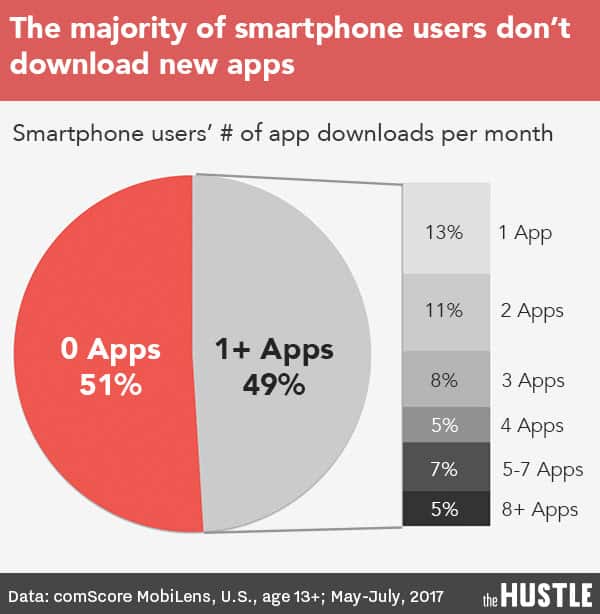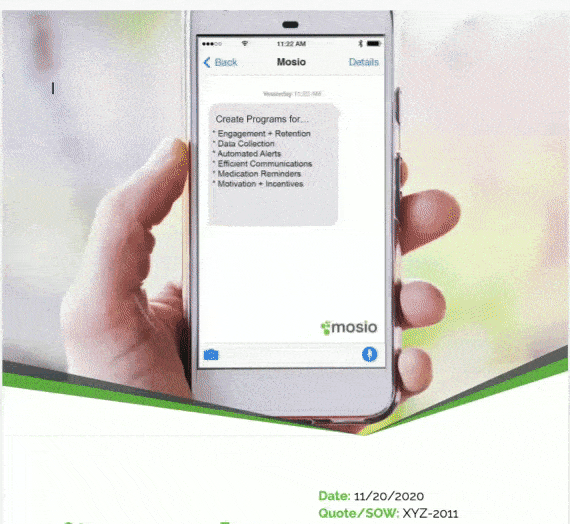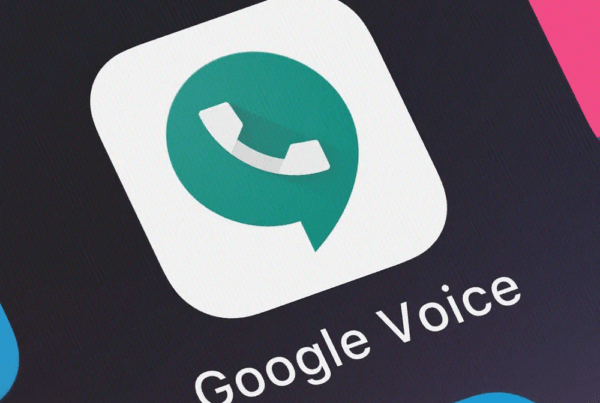
Image provided by The Hustle, a great email newsletter keeping people informed about interesting things going on in the world. https://thehustle.co/no-one-downloads-apps
Several years ago, clients and others would ask us “so why don’t you have an app, are you going to build one?” With Apple spending millions on “there’s an app for that” ads, it made sense. We always responded with “Mosio works on the most popular app on every mobile phone: text messaging.” Sometimes we used fancier words and phrases, like “ubiquitous” or “accessibility and discoverability”, but the sentiment was the same.
Mobile health continues to evolve and we’re seeing heavier adoption in the healthcare industry. More patient interactions are taking place to improve engagement, gathering patient satisfaction, and increasing patient adherence to medicine and “doctor’s orders” as a part of improving healthcare outcomes.
That said, the new findings in the 2017 Mobile App Report from comScore should not be too surprising to those paying attention, even if a bit of a bummer to those solely focused on building the next big mobile app. Think of the last time you downloaded a mobile app on your smartphone. Now think of the last time you used it.
Today, the majority of app users access 20 or fewer apps per month, and their number one most-used app accounts for half of all their time spent using apps. Their top 10 most-used apps account for nearly all the time they spend in apps. That leaves little room for newcomers.
via TechCrunch
So there it is…Most mobile users download zero new apps per month. Yet another mobile industry report supporting our continued efforts in sticking with text messaging. SMS is the most ubiquitous channel on mobile phones, accessible to nearly every mobile phone user, discovered easily because the app already exists on their phone, out of the box.
Post: 7 Ways to Increase Clinical Trial Patient Engagement with SMS
Does this mean people aren’t using mobile apps? No. In fact, the report also states that certain demographics are using apps more than ever, but they are staying with some of the more “sticky” ones, Facebook, FB Messenger, and YouTube leading the pack across all demographics. If you’re looking to improve patient adherence, interact more efficiently, or gather patient satisfaction, unless you’re trying to do so with Millennials, we recommend utilizing text messaging and the mobile web. Looking for some statistics and research on older demographics and their use of mobile technologies? We have a blog post you’ll find interesting, here. Happy texting!
Hello! Are you looking to improve participant engagement, increase retention, integrate text-based interventions, or collect data in your behavioral research study using text messaging? If so, contact us for a free consultation, or you can get quick access to our pricing guide here.







